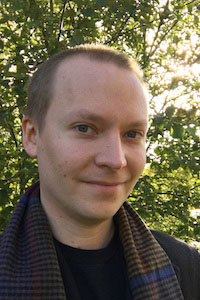Joakim Sundh
Joakim Sundh holds a psychologist degree and a PhD in Cognitive Psychology. His research is concerned with how people form judgments and make decisions, particularly in situations that involve risk or uncertainty. A large portion of this work involves developing statistical models of human cognition and fitting these to actual human behavior. After earning his doctorate in 2019, Joakim worked as a post-doc in a project that examined sampling-based models for approximation of Bayesian inference at the University of Warwick. During his time as a researcher he has published works on both human perception and probability and the cognitive processes that constitute the basis of probabilistic thinking.
Joakim runs an ongoing three-year research project investigating how people approach events with low probability but high impact. He also has ongoing collaborations with research groups at the University of Warwick and the KTH Royal Institute of Technology.

Doctor Joakim Sundh, Cognitive psychology, Department of Psychology, Uppsala University, Sweden
Selected publications
Sundh, J., Collsiöö, A., Millroth, P., & Juslin, P. (2021). Precise/not precise (PNP): A Brunswikian model that uses judgment error distributions to identify cognitive processes. Psychonomic Bulletin & Review, 28, 351-373.
Chater, N., Zhu, J. Q., Spicer, J., Sundh, J., León-Villagrá, P., & Sanborn, A. (2020). Probabilistic biases meet the Bayesian brain. Current Directions in Psychological Science, 29(5), 506-512.
Sundh, J. (2023). The Neglected Importance of Auxiliary Assumptions when Applying Probability Theory (PsyArX Preprint).
